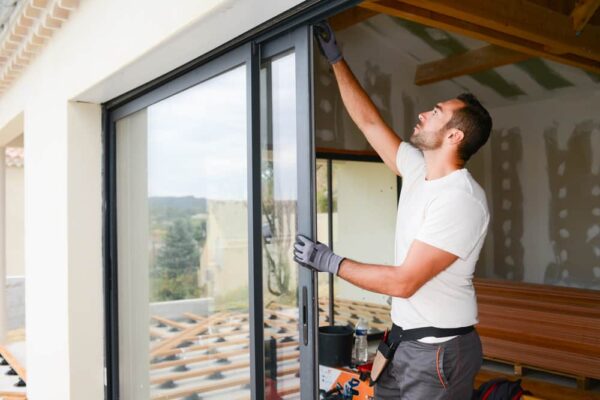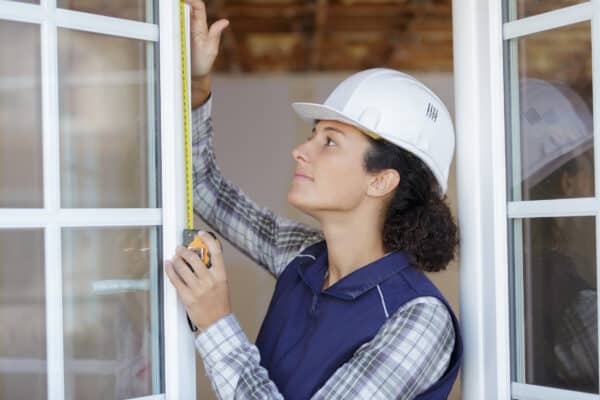When replacing windows and doors in your home, you must comply with building regulations, which can be achieved by choosing a certified installer through the Competent Persons Scheme. However, what is the difference between FENSA and Certass and Assure?
Homeowners are not always aware of the building regulations for replacement windows and doors, and more than 50% of glazing must meet current Part L of building regulations. It is also your responsibility to register replacement window and door installations with your local council, as it is illegal to install double glazing without building regulation approval. If a building regulation certificate has not been issued, your local authority may ask for your window or door installation to be altered or removed.
Why do I need building regulations for replacement windows and doors?
Since 2002, it has been a legal for any replacement windows, doors, roof lights and roof windows in a domestic dwelling to be issued with a certificate. Window installers had to register every window they installed with their local building control office, which was expensive and time-consuming. To help them save time and money, the Glass and Glazing Federation got government approval to create a self-certification scheme. This allowed installers to certify their own work without involving building control. This scheme was called FENSA and was launched in early 2002 to prepare for new regulations.
When you come to sell or remortgage your home, the purchaser’s solicitors will require a copy of the building regulation certificate to complete any house purchase. Since FENSA, we have also had CERTASS and Assure set up as similar schemes.
How do I get a certificate for replacement windows and doors certificate?
The building regulation certificate must be issued or applied for by the installer of the windows or doors, not the manufacturer, unless these are the same.
There are two ways to obtain a building regulation certificate for your replacement windows and doors, by you or your builder through Building Control or by using a certified installer approved through the Competent Persons Scheme: FENSA and Certass and Assure.
After completion of the installation, the installer or builder must supply you with a building regulation certificate, which is proof that it complies with building regulations for replacement windows and doors and is registered with your local council.
What are FENSA, CERTASS, and Assure, Competent Persons Schemes for replacing windows and doors?
Competent person schemes are an alternative to Building Control. It is a way for window and door installers to prove their ability to work according to the required Part L Building Regulations for replacement windows and doors.
An installer registered with a scheme, FENSA and Certass and Assure, can self-certify and register the installation as proof their work complies with building standards, which a solicitor can search for when you come to sell your home.
The self-certification scheme for installing replacement windows, roof lights, roof windows or doors DOES NOT include new conservatories, porches with no heating, loft and property conversion, new builds, new extensions, repairs where the frame is not included, commercial and listed properties. It is for the replacement of old windows and doors only.

How to obtain building regulations for replacement windows and doors certificate via Building Control
You, or your builder, must arrange and pay directly for the inspection and Building Control officer. Front Door is an LABC website, a not-for-profit membership organisation representing all local authority building controls in England and Wales.
You can apply online through the LABC (Local Authority Building Control) website.
Obtaining building regulations for replacement windows and doors certificate via the Competent Persons Scheme
The Competent Persons Scheme allows approved installers to confirm they follow building regulations in England, Wales, and Scotland. Window and door installers do not need to be registered with a Competent Persons Scheme to install windows and doors. However, it is against the law to install double glazing without building regulation approval. The main benefits of using an installer attached to a scheme are:
- Saving homeowners the time and money needed to meet building regulations
- Someone to turn to if there is an issue with the installation
- Insurance-backed warranties and complaints procedures.
Choosing a Competent Persons Scheme installer
There are currently three Competent Persons Scheme providers: FENSA and Certass, and Assure. You can also find a competent person by postcode on the LABC website.
Who are FENSA?
FENSA stands for Fenestration Self-Assessment Scheme. They were the first Competent Person Scheme body set up by the Glass and Glazing Federation in April 2002. They cover England, Wales and Scotland.
Who are Certass?
CERTASS is short for Certification and Self-Assessment. Established in 2006, they are a not-for-profit company set up as an alternative to FENSA. They cover England, Wales and Scotland.
Who are Assure?
Assure is an independent company established after the BSI stopped running a self-certification scheme in 2014. They cover England and Wales (not Scotland).

What is the difference between FENSA and Certass and Assure?
Nothing! Approved installation members of FENSA and Certass and Assure can certify their installations to current Building Regulations for replacement windows and doors. They are all UKAS* approved certification schemes in response to Government legislation.
Ask which Competent Persons Scheme your installer belongs to. You can then check their credentials by using the company search function available on the Fensa and Certass, and Assure websites. Ask your installer to confirm they will supply you with the Building Control certificate.
Just because the installation company belongs to a Competent Persons Scheme does not guarantee the quality of the work. Please get in touch with us at DWE for advice if you want help choosing a quality installer.
*UKAS (the United Kingdom Accreditation Service) is the appointment by the government to assess organisations that provide certification, testing, inspection, and assessment services.










